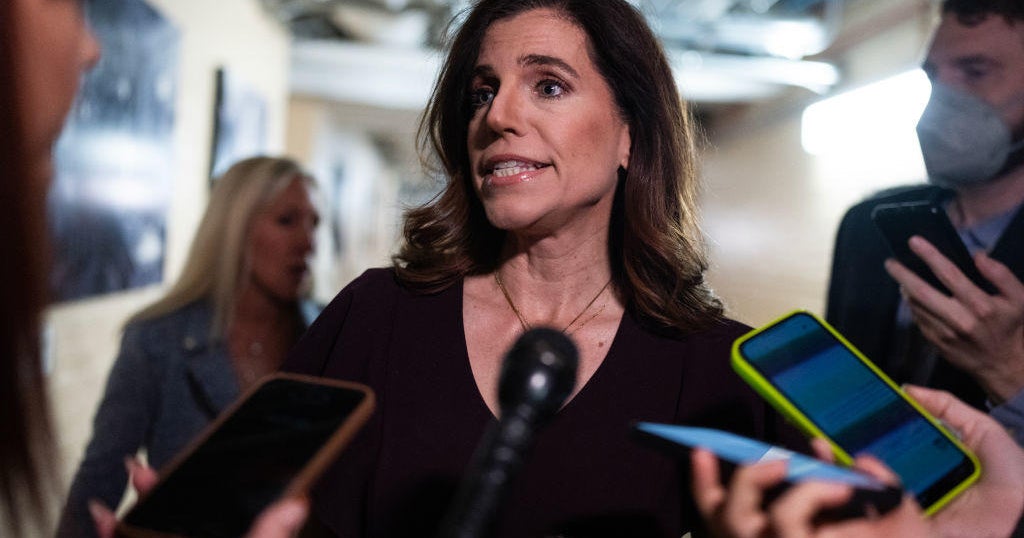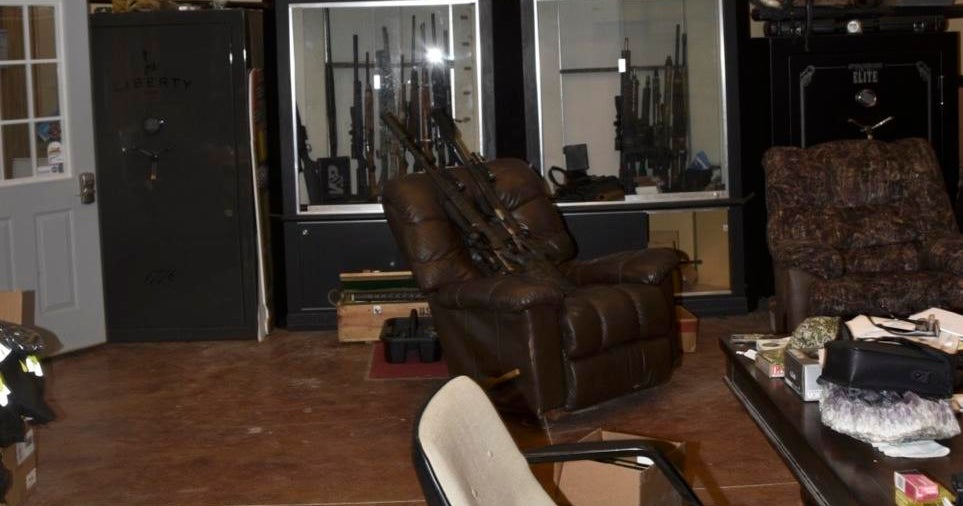CBS News
Most Chicago street festivals aren’t paying police overtime, leaving taxpayers on the hook

CHICAGO — The city of Chicago has been covering the cost of thousands of hours of police overtime at street festivals, despite event organizers being required to pay for it under city law, records show.
Chicago hosts hundreds of street festivals annually, with about 1,300 held between 2021 and 2023. For those festivals, nearly 2,800 Chicago police officers worked a combined total of 27,000 hours of overtime to patrol the events, according to a CBS News Data Team analysis of police overtime data and special events permits.
The overtime that has gone unpaid likely costs city taxpayers millions of dollars, based on previous police spending.
Last week, alderpeople grilled officials from the city’s Department of Cultural Affairs and Special Events, demanding to know how many police resources were poured into neighborhood street festivals while raising concerns about officer burnout amid so many competing demands.
The hearing took place as city officials looked for revenues that would help them avoid raising property taxes, and after a busy summer that pulled officers out of neighborhoods and into events such as the Democratic National Convention, NASCAR and Lollapalooza. The police department is working with a yearslong decline in staffing and now has more than about 1,000 fewer officers than it did before the pandemic.
“It’s my understanding there are a number of events in the city where, for whatever reason, we don’t ask the event organizer to reimburse us for things like police resources, police and fire, paramedic, traffic control,” Ald. Brendan Reilly (42nd) said during the hearing last week. “Some events spend lots of money on those sorts of things, like Lollapalooza, for example. Yet other events don’t get charged these things.”

City law requires the police commander of special events to “calculate the estimated hourly cost for the personnel required for the event, and … charge the applicant for such services” in excess of 12 shifts.
But after months of public records requests, the Department of Finance was not able to produce invoices for city employees staffing street festivals. The department provided invoice data for traffic control aides at events including Riot Fest, Lollapalooza and several 5Ks, and referred CBS News to the city’s Public Safety Administration for police overtime.
That department, which has a separate budget from the police department, handles contracts such as ShotSpotter for the police and fire departments and the Office of Emergency Management and Communications. The Public Safety Administration hasn’t responded to records requests for police overtime for special events and officials there did not return requests for comment.
Local aldermen are also starting to ask questions. Alds. Raymond Lopez (15th), Matt O’Shea (19th), Ald. Jeanette Taylor (20th), Chris Taliaferro (29th), Scott Waguespack (32nd), Andre Vasquez (40th), Bennett Lawson (44th), Leni Manaa Hoppenworth (48th), and Maria Hadden (49th) all pressed DCASE on the issue at last week’s hearing, with several asking for evidence of the required reimbursements.
Some also requested a list of Chicago’s special events that require additional police resources, while others asked for cost analyses for various special events.
“I think there is a lack of equity in how we’re charging special events for reimbursements to the city of Chicago, and as a legislator facing a billion-dollar budget deficit and being asked to sock it to my constituents with more property taxes,” Reilly said. “Using police officers and paramedics to support large, private and oftentimes profit-making special events, that’s not a luxury we have. Bureaucrats may think this stuff is free, but our constituents, the taxpayers, pay for it.”
In an interview with Block Club Chicago, Reilly clarified that concerns about unpaid reimbursements came from members within the police department and “other departments that intersect with special events.”
“It’s unacceptable. And the worst part is, we may never get a real accounting of what exactly we’re owed,” Reilly said. “I don’t think anybody could afford police costs or overtime.”
Street festivals can be a boost to neighborhood economies, raising awareness and funds for local groups and nonprofits. They often require months of planning and coordination with various city departments before a permit can be issued.
Despite rising production costs for street festivals, the city provides significant concessions, including steeply discounted street closures and covering the cost of taking privatized parking meters offline.
Per city ordinance, organizers typically pay a $100 permit fee if filed on time. Street closures cost event producers $100 per day per block for a street festival permit downtown and $50 for other parts of the city. Filming permits for TV shows to shut down a street are more expensive, running around $500, while permits for developers moving heavy equipment and cranes can cost thousands of dollars.
Alderpeople also pressed DCASE officials about revenue loss from parking meters for special events being passed on to taxpayers. The Chicago Tribune reported that the city paid $600,000 to the city’s private parking meter company to cover the revenue lost by taking parking meters offline during NASCAR the last two years.
With a nearly $1 billion budget gap next year, the hidden costs of hosting large-scale events have become more pronounced.
Despite these concessions, Hank Zemola, CEO of Special Events Management, believes that requiring him and other event producers to pay for police overtime would effectively kill most festivals.
Zemola has been involved in producing Chicago special events since the 1970s. His company is listed on at least 23 permit applications this year, including for some of the city’s most popular street festivals: Pride Fest, Northalsted Market Days, Ribfest, Taste of Greektown, Chinatown Summer Fair and more.
“I don’t think anybody could afford police costs or overtime. I think pretty much 90% of events would be done,” Zemola said.
All special event producers are required to present security plans to the police for feedback before the city’s events department issues a permit. The amount of private security is determined by various factors, including the event’s history, location, current events and crime trends. Event organizers suggest a security plan and the police department approves, denies and makes suggestions.
Zemola only uses off-duty officers for the street festivals he produces. He says it’s an expensive endeavor, costing tens of thousands of dollars depending on the size of the event.
Because event security plans are assessed by the police department, Zemola argues his company should not be responsible for overtime costs for police officers sent to his events.
“It’s like someone coming and painting your house and then saying, ‘I want you to pay for it.’ … Well, I didn’t want you to paint my house,” Zemola said. “I ordered all this [security] so we wouldn’t have to do that.”
Special Events Management has, however, paid for traffic control services for various athletic events it organizes, according to records from the Department of Finance.
Duff Entertainment, the organizer for the 2024 Taste of Randolph, declined to be interviewed but said in a statement that the company has not been billed for police overtime associated with this year’s festival.
“The West Loop Community Organization (WLCO) and Duff Entertainment have confirmed that they are actively looking into this and have reached out to the City of Chicago to get clarification on next steps,” Kelli Packer, a spokesperson for Duff Entertainment, said in a statement.
Large special events are paying their way
Unpaid police resources being poured into profit-making neighborhood street festivals aren’t the only issue. The city ultimately polices all large events that are quintessential to life and culture in Chicago, assigning officers to manage them on overtime.

Chicago deployed more than 2,400 officers at last year’s Pride Parade. Though officials sought to reduce that number this year, police brass ultimately canceled officers’ days off to staff patrols following the parade.
The city will typically eat the costs associated with parades such as Pride, St. Patrick’s Day, Bud Billiken and the upcoming Magnificent Mile Lights Parade.
The organizers for some events, such as Lollapalooza and the Chicago Marathon, will reimburse the city for overtime. C3 Presents, which organizes Lollapalooza, was billed more than $100,000 for traffic control personnel at the concert last year, in addition to police overtime.
Meanwhile, Special Events Management was billed nearly $5,000 for traffic aides for the Abbott 5k and more than $11,000 for the Shamrock Shuffle in 2023, according to invoice data from the Finance Department. But that figure does not include the roughly 113 police officers working overtime at the Shamrock Shuffle last year.
And while financial costs are the top concern at budget hearings, aldermen also highlighted how special events remove police from neighborhoods while contributing to officer burnout.
“We have several large-scale events on the same day,” said Ald. Matt O’Shea (19th). “Hundreds and hundreds of police officers, days off canceled, double time pay. The cash register is ringing.”
Of the 67 police officers who worked Taste of Randolph last year, 27 were working on what was supposed to be their day off. Of the roughly 350 officers working 2023’s Pride Fest, 254 — or 73% — were on a canceled day off.
During Lollapalooza weekend last year, more than 1,800 officers worked the concert weekend, accounting for 16% of the entire police force that month, according to personnel data from the Inspector General’s office.
And of those 1,800 officers at last year’s Lollapalooza, about 1,180 — or 65% — worked on their day off. More than 500 officers were pulled out of neighborhoods to staff the concert, according to an analysis of overtime data staffed to the event by unit. Additional officers from detectives to forensics were tending to crowds instead of cases.
Alderpeople are looking to overhaul the system, with many saying at DCASE’s budget hearing that the city needs to find and close the loophole it has created.
At last year’s City Council budget hearing, police Supt. Larry Snelling said police presence at street festivals was “a serious pull on manpower.”
The Police Department “does not provide private security for events, but does provide resources in the areas of the event to ensure the safety of all those living, working and visiting the area,” CBS and Block Club previously reported.
DCASE officials revealed at last week’s hearing that the department is not part of the invoicing process for reimbursement of police overtime, concerning many aldermen that permits are being issued continuously to event producers with unpaid tabs.
“We need to do a better job of identifying where we need to charge more,” O’Shea said. “We need to do a better job of when we’re permitting these events.”
This story was produced under a collaboration by Block Club Chicago, a nonprofit newsroom focused on Chicago’s neighborhoods, and CBS News Chicago. Melody Mercado contributed to this report.
CBS News
Trump could target Affordable Care Act and Medicaid to help pay for lower taxes, experts say

The Affordable Care Act, also known as Obamacare, remains popular with the public, garnering the approval of 54% of U.S. adults, according to a recently released Gallup poll. But experts say that may not insulate the federal health insurance program from change as President-elect Donald Trump and his fellow Republicans look to renew $4 trillion in expiring tax cuts.
Many provisions of the 2017 Tax Cuts and Jobs Act (TCJA), a signature law passed during Trump’s first term, are due to sunset at the end of 2025. Republican leaders are now strategizing on how to extend the cuts, while the president-elect has also pledged to slash corporate taxes and eliminate taxes on workers’ tips and overtime pay.
But renewing the TCJA tax breaks alone without reducing federal spending would add nearly $4 trillion to the nation’s deficit through 2035, according to the Committee for a Responsible Federal Budget, an advocacy group focused on reducing the nation’s debt.
Trump has already taken two of the biggest government programs — Social Security and Medicare — off the table for potential cuts. Reduced defense spending is also viewed as unlikely, meaning nearly half of federal spending would be protected, Larry Levitt, executive vice president for health policy at KFF (formerly Kaiser Family Foundation,) said in a recent JAMA article.
That leaves “Medicaid, which is the next largest source of federal spending, and the ACA as prime targets for spending cuts. The math is inescapable,” Levitt stated.
Will Trump repeal the ACA?
By contrast, an outright repeal of the ACA is unlikely. While Trump has continued to criticize the health care expansion measure, he has retreated from his previous vows to axe the ACA entirely.
“President Trump will deliver on his pledge to make his highly successful tax cuts permanent and ease the financial burden on families across the country. He will also end the drain on our health care system so that our country can continue to care for Americans who rely on Medicaid, Medicare and Social Security,” Trump-Vance Transition Spokesperson Anna Kelly told CBS News.
Support for the ACA hit a record 55% in 2017, the first time a majority of Americans approved of the health care law since Gallup started asking about it in 2012. That high watermark came a month after failed efforts by then-President Trump and the GOP to repeal and replace the law.
“The Affordable Care Act is still politically divisive, but overall more popular with the public than ever,” Levitt told CBS MoneyWatch. “It’s unlikely Republicans will try to repeal the ACA again, but cuts to the ACA and Medicaid are quite possible if Republicans are looking to pay for tax cuts.”
Brad Ellis, senior director at Fitch Ratings, noted that Trump and Republican lawmakers have expressed interest in changing how the ACA operates, including introducing high-risk participant pools and possibly reducing subsidies for public exchange business. Such changes could hurt enrollment, he said in a recent report.
During the presidential campaign, Trump said he had “concepts of a plan” to replace the ACA.
“Obamacare stinks,” Trump recently told NBC News’ “Meet the Press. “If we come up with a better answer, I would present that answer to Democrats and to everybody else and I’d do something about it.”
Big cuts without lifting a finger
Republicans can make big cuts to the ACA simply by standing pat. That’s because enhanced ACA premium subsidies, which were enacted after President Biden was elected and the Democrats took control of Congress, are scheduled to lapse along with the 2017 tax cuts at the end of 2025. The drop in financial aid ACA enrollees would increase out-of-pocket premiums by an average of $705 a year, or 79%, according to a KFF analysis.
The Congressional Budget Office projects that letting the additional ACA subsidies expire would reduce the federal deficit by $335 billion over a decade, relative to extending them permanently.
Enrollment in the ACA nearly doubled to a record 21 million after the enhanced subsidies went into effect. The CBO estimates that 6.9 million fewer people would be enrolled in ACA Marketplace plans without the subsidies, and 3.4 million more would be uninsured.
The impact would be felt nationwide, but particularly in Southern states that have not expanded Medicaid eligibility under the ACA, according to Levitt, who noted that the five states with the fastest growth in ACA enrollment since 2020 are Georgia, Mississippi, South Carolina, Tennessee and Texas.
“Health care was not a big topic during the campaign, so I can imagine that voters could be surprised to see cuts to Medicaid and the ACA that they didn’t hear about during the campaign,” Levitt said. “As frustrated as people are with the current state of health insurance, disrupting the status quo makes them nervous.”
Medicaid a target for cuts?
Medicaid accounts for more than $600 billion a year in federal spending and covers 81 million people, according to KFF.
“There are indications that support for Medicaid will decrease under the new administration, suggesting lower enrollment and revenue headwinds for this program,” stated Fitch’s Ellis.
Trump was silent on Medicaid during the 2024 campaign, but his budget proposals during his first administration included a plan to cap federal spending on Medicaid. The Project 2025 plan prepared by the Heritage Foundation and a coalition of conservative groups, is recommending changes to Medicaid including a limit on federal spending.
“The centerpiece of several prominent plans — Project 2025, the Republican Study Committee fiscal year 2025 (RSC) budget and the fiscal year 2025 House GOP budget resolution — is to cap and deeply cut federal Medicaid funding,” Edwin Park, a research professor at the Georgetown University McCourt School of Public Policy’s Center for Children and Families, noted in September.
Trump sought distance himself from Project 2025 in the months leading up to the election, criticizing some of its policy proposal as “abysmal.”
But Levitt said the ACA and Medicaid could still end up facing cuts as the Republicans, who will control the White House and both houses of Congress, hash out their fiscal plans after President-elect Trump assumes office.
“So much depends on whether there is pressure to pay for tax cuts with spending reductions. If Republicans are willing to cut taxes and increase the deficit, we may not see big cuts to the ACA and Medicaid,” said Levitt. “There are Republicans who may insist on spending cuts to offset tax cuts. If that’s the case, the ACA and Medicaid are very likely to be on the chopping block.”
CBS News
Dozens of Britons were “killed and butchered” and then cannibalized after Bronze Age massacre, research shows

New research suggests that dozens of Bronze-Age era Britons were killed in an attack unlike any previous known to archaelogists studying that time period and location.
The research on human remains from Charterhouse Warren in southwest England, conducted by a team of researchers from multiple institutions including Oxford University, was published in Antiquity, a journal of world archaeology. It found that at least 37 Bronze Age-era men, women and children were “killed and butchered” and then cannibalized, with their bodies then thrown down a nearly 50-foot deep natural shaft. While archaeologists have found the remains of Bronze Age and later Britons who died violently, those incidents were largely isolated. Mass graves from this era have also been found, but the remains were laid to rest respectfully, unlike those studied.
Researchers first became aware of the shaft in the 1970s. Two excavations were conducted in the 1970s and 1980s. The human remains, as well as some artifacts including a flint dagger, were found at multiple spots in the shaft during these digs. More than 3,000 individual human bones and bone fragments have been recovered overall. Those bones were used to estimate that at least 37 individual sets of remains were in the shaft. Different bone lengths show that the people killed were both male and female, and ranged in age from infants to grown adults. Ongoing research is working to determine how the people were related to each other.
The way the remains were disposed of made the detailed examination possible, the researchers said. The shaft helped preserve the bones and keep them grouped together.
Cambridge University Press on behalf of Antiquity Publications Ltd
The bones “display clear evidence of blunt force trauma,” according to researchers, suggesting that many of the people in the shaft “suffered a violent death.” Other injuries, including removal of the scalp and severed muscles in the jaw suggesting removal of the tongue or lower jaw, also likely occurred, evidenced by marks on the bones, the researchers said. Some of the victims may have been beheaded or dismembered.
It’s possible that the victims were held captive or ambushed, because of the severity of the injuries, the researchers said. It’s not clear who could have carried out the attacks.
There is also evidence that the bodies were cannibalized, the researchers said, including human teethmarks on the bones and indicators that marrow, the soft tissue inside bones, was removed. The researchers said the cannibalism was likely conducted “within a context of a violent conflict, in which individuals are dehumanized and treated as animals.”
“Some 37 men, women and children—and possibly many more—were killed at close quarters with blunt instruments and then systematically dismembered and defleshed, their long bones fractured in a way that can only be described as butchery,” the researchers said.
Later in the publication, the researchers referred to the scene as a “massacre,” and suggested it may have even been a “political statement” of violence so brazen it would have “resonated across the wider region and over time.” However, it’s not clear what could have led to the violence: “Neither climate change, ethnic conflict nor competition over material resources seem to offer convincing explanations,” according to the researchers, leaving the only likely option that the violence broke out as part of a pattern of revenge or violence between communities.
“At this stage, our investigation has raised as many questions as it has answered,” the researchers said. “Work is ongoing to shed more light on this decidedly dark episode in British prehistory.”
CBS News
Trump team working out immigration plans, pushing for large-scale deportations

Watch CBS News
Be the first to know
Get browser notifications for breaking news, live events, and exclusive reporting.









